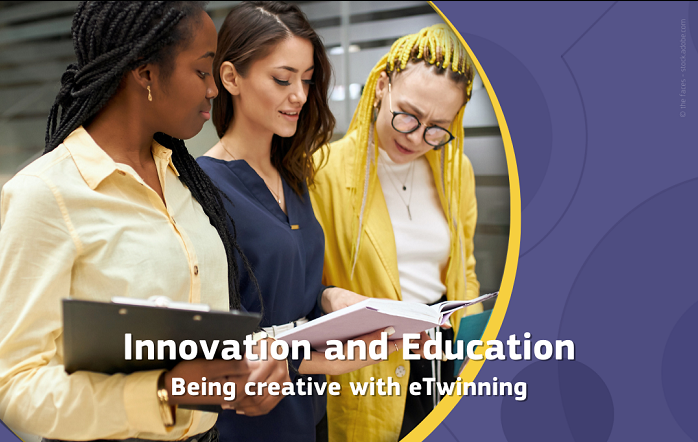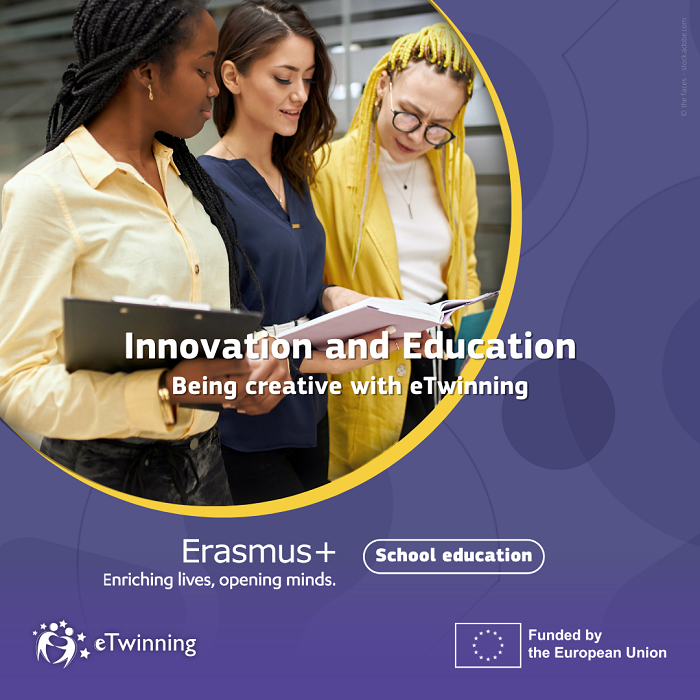indireinforma

The eTwinning theme of the year 2023 “Innovation & Education” is a concept that goes far beyond the use of technology in the classroom, as it impacts on many other aspects of learning such as creativity, analytical thinking, problem solving skills, peer collaboration.
With the adoption of the New European Agenda for Innovation in 2022, the European Commission is positioning Europe at the forefront of the so-called Deep Tech, a term that identifies organizations or companies, usually startups, that use technologies based on engineering innovations or scientific advances and discoveries.
Education is at the forefront of this European “powerhouse”, as the innovators of the future, that is to say, the students are preparing to enter this highly competitive job market. It is central to the planning, construction and implementation of innovative teaching methods, as well as to nurturing individual talents, and plays a key role in developing and realizing knowledge potential.
It is therefore of paramount importance for teachers to explore the full spectrum of innovation components: identifying learning needs, dynamically organizing group learning, providing educational resources and the necessary support for student orientation.
Here are some examples of the kind of innovation eTwinning will foster during 2023:
- Social innovation in schools
Create spaces to collect pupils’ suggestions on how to improve schools, giving more weight to pupils’ expression and ideas and better integrating their priorities and needs.
- Mental and emotional well-being in schools
Reduce the burden of a rigid curriculum and emphasize community connections; promote the well-being of students and teachers and bring about a creative learner-centred and competence-based approach (ideally in hand with the European LifeComp framework). - Educational innovation
A return to the Socratic method, to helping students develop their own opinions, to speak in public, to imagine and take control of their own future. Schools will be called upon to develop students’ critical thinking while leaving room for the expression of their creative opinions. This does not require digital tools, but time to discuss and think. - Connections with local organizations
Carrying out activities in collaboration with local bodies and organizations can offer students great opportunities for learning and experience. - The development of an interest in innovation and key innovation themes
Ethical guidelines related to artificial intelligence and the use of data in teaching and learning can be included among the actions indicated by the action plan for digital education.


